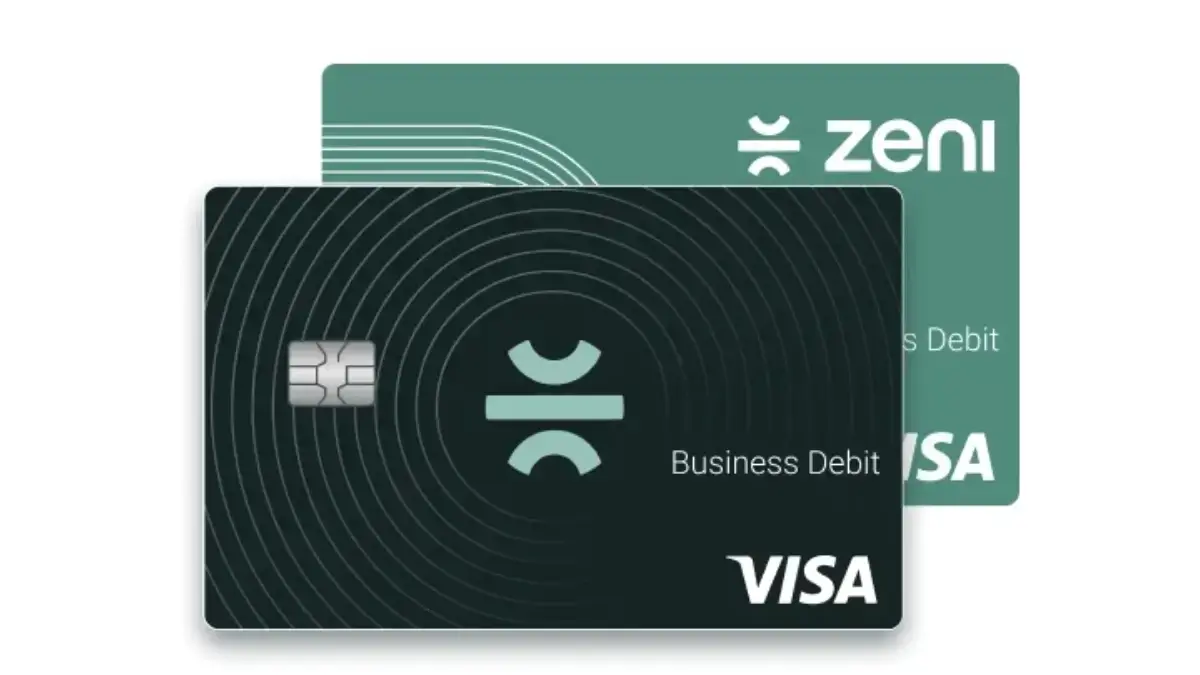
Kudos has partnered with CardRatings and Red Ventures for our coverage of credit card products. Kudos, CardRatings, and Red Ventures may receive a commission from card issuers. Kudos may receive commission from card issuers. Some of the card offers that appear on Kudos are from advertisers and may impact how and where card products appear on the site. Kudos tries to include as many card companies and offers as we are aware of, including offers from issuers that don't pay us, but we may not cover all card companies or all available card offers. You don't have to use our links, but we're grateful when you do!
Does Your Credit Score Affect Your Auto Insurance Rates in 2025?
July 1, 2025


Yes – in most U.S. states, your credit score can significantly impact your auto insurance premium. Insurers commonly use a credit-based insurance score (derived from your credit history) to help set rates. This means drivers with poor credit often pay much higher insurance costs than those with good credit.
In fact, having bad credit can raise your car insurance rates more than a recent DUI in some cases. Why do insurers care about credit? Simply put, statistical studies show a strong link between credit behavior and insurance risk – so your credit profile can be a big factor in what you pay for coverage.
Why Insurers Use Credit Scores for Car Insurance
Insurance companies use many factors to price auto policies – including your driving record, vehicle, location, and yes, your credit history. Decades of research have found that credit characteristics correlate with the likelihood of filing claims.
From the insurer’s perspective, credit data helps refine how they assess risk. Over 92% of major insurers use credit-based scores as part of setting premiums (where allowed). Industry surveys show that including credit history often leads to fairer pricing. In short, insurers believe credit scores make pricing more accurate.
What exactly is being used? Insurers don’t use your standard FICO credit score directly; instead they generate an insurance credit score from your credit report information. This specialized score weights factors differently than a lending credit score – focusing only on aspects linked to claim risk). Personal details like income, gender, or job status are not included. Each insurer has its own formula, but generally a higher insurance score means you’re seen as lower risk and thus earns you a lower rate.
How Much Does Credit Score Affect Insurance Rates?
The difference in premiums between excellent and poor credit can be dramatic. Multiple analyses confirm that drivers with bad credit pay much more for car insurance on average:
- 61% – 65% higher rates for drivers with poor credit versus good credit.
- Over 2× the cost in extreme cases.
In dollar terms, having a bad credit score could cost you hundreds or even thousands more per year on auto insurance. One analysis calculated a poor-credit driver might pay around $1,500 more annually than a similar driver with a perfect credit score. These figures will vary by state and insurer, but the trend is clear: a low credit score can badly hurt your wallet when it comes to car insurance.
Why such a big swing? Insurers see poor credit as a red flag for risk. They’ve determined that drivers who manage credit irresponsibly are more likely to have lapses that lead to claims (or even fraud). Therefore, those drivers are charged higher premiums to compensate for the higher expected costs.
On the flip side, a driver with excellent credit is statistically less likely to file claims, so they receive much lower rates. Your credit tier can sometimes matter almost as much as your driving record – a fact that surprises many consumers.
Use a tool like Kudos to help on both fronts – credit and insurance. Kudos can monitor your credit score (through your credit card accounts) and help you manage credit card usage wisely to boost your score.
Where Credit Scores Don’t Impact Insurance Rates
Not every state allows credit-based insurance scoring. Currently, three states ban credit score use completely for auto insurance pricing: California, Hawaii, and Massachusetts. In those states, insurers cannot factor in your credit history at all when setting rates (which means your premium is unaffected by credit – good news if you have poor credit, less benefit if you have excellent credit).
Several other states impose partial restrictions: for example, Michigan bans using credit for setting rates but allows it for installment payment plans, Maryland and Oregon only allow credit consideration when a policy is first written (not at renewals), and Utah limits credit use to your initial quote and first 60 days of coverage. These laws aim to prevent unfair discrimination. If you live in a state with restrictions, insurers either ignore credit or use it in a limited way by law.
For the vast majority of states, though, credit scoring in insurance is legal and widely practiced. Only California, Hawaii, and Massachusetts fully prohibit it, so unless you reside there, assume your credit will be a factor in your auto insurance rates. Always check your own state’s regulations if unsure. And remember, even where credit is used, insurers cannot refuse to insure you or cancel a policy solely due to credit – it’s just one piece of the puzzle (albeit a significant one).
Key Credit Factors That Insurers Consider
As mentioned, insurers derive a custom “insurance score” from your credit report. While the exact formula differs, the key credit factors usually include:
- Payment History: Do you pay bills on time? Late payments, collections, or past due accounts hurt your insurance score. A spotless payment history is a big plus.
- Credit Utilization: How much of your available credit are you using? High balances relative to limits (maxed-out cards) are unfavorable. Low utilization (plenty of unused credit) helps.
- Length of Credit History: Longer credit history (older accounts) tends to improve your insurance score, whereas a very short credit history can be a negative.
- Recent Applications for Credit: Opening many new accounts or having multiple recent hard inquiries may ding your insurance score. This suggests potential financial stress or risk.
- Credit Mix: Having a mix of credit types (credit cards, loans, etc.) in good standing can slightly help, though this is a smaller factor.

Notably, the amount of debt itself isn’t heavily weighed beyond how it affects utilization. And checking your insurance quotes won’t hurt your credit score – insurance inquiries are “soft” checks, not loan applications.
The main takeaway: maintaining overall good credit habits (paying on time, keeping balances low, building a solid track record) will naturally yield a better insurance score and thus better rates.
What You Can Do About It
Knowing that credit affects your auto premiums, how can you use this information? First, check your credit reports for accuracy and work on improving your credit if it’s not great. Even moving up one credit tier can lead to about a 17% average drop in your car insurance premium. We’ll cover specific credit-improvement tips in a later section, but strategies include paying bills consistently by the due date, reducing debt, and avoiding excessive new credit applications. Over time, better credit will translate into insurance savings.
Second, shop around with different insurers. Each company weighs credit a bit differently in their rate formula. Some carriers might penalize poor credit more than others, so it pays to compare. You may find an insurer that offers a much friendlier rate for your credit bracket. Also, a few insurers or specialty programs don’t use credit at all (especially in states that restrict it). Obtaining multiple quotes is crucial – and it’s easy to do online without affecting your credit score.
Finally, take advantage of other discounts and factors within your control. While you can’t change your credit overnight, you can ensure you have a clean driving record, choose a modest vehicle to insure, bundle your auto policy with other policies, or use telematics programs. Safe-driving and multi-policy discounts can mitigate a credit-related surcharge. Over time, as your credit rebounds, you can then re-shop your insurance for an even better deal.

FAQs about Credit Scores and Auto Insurance
Does a low credit score really increase car insurance rates?
Yes. In most states, a low credit score can lead to substantially higher car insurance rates. Insurers use credit-based insurance scores as a risk indicator. Studies show drivers with poor credit file more claims, so they are charged more.
Which states don’t allow credit scores to be used for auto insurance?
California, Hawaii, and Massachusetts ban the use of credit history in auto insurance pricing – insurers in those states cannot consider your credit score at all. Michigan, Maryland, Oregon, and Utah have partial restrictions.
Is an insurance score the same as my credit score?
Not exactly. Your credit score (FICO, VantageScore, etc.) predicts likelihood of repaying debt, while a credit-based insurance score predicts the likelihood of filing insurance claims. Both are derived from your credit report, and they use similar factors, but weighted differently for insurance risk. You don’t have just one insurance score – different insurers and analytics firms (FICO, LexisNexis, etc.) have their own models.
Can I get car insurance with no credit check?
A few insurers advertise “no credit check” car insurance, but be cautious. Most major insurers will check your credit in states that allow it. Some smaller or non-standard insurers might not use credit, or if you live in a state like California where it’s banned, your credit won’t be considered.
How can I lower my auto insurance if I have bad credit?
Start by shopping around – rates can differ drastically between insurers, and some will penalize bad credit less severely. Look for all available discounts (safe driver, multi-car, bundling homeowners or renters insurance, etc.) to bring your price down. You could consider a usage-based insurance program that bases rates on your driving habits (these focus more on driving behavior than credit). If you live with a spouse or partner who has much better credit, it might help to list them as the primary named insured on the policy.

Supercharge Your Credit Cards
Experience smarter spending with Kudos and unlock more from your credit cards. Earn $20.00 when you sign up for Kudos with "GET20" and make an eligible Kudos Boost purchase.
Editorial Disclosure: Opinions expressed here are those of Kudos alone, not those of any bank, credit card issuer, hotel, airline, or other entity. This content has not been reviewed, approved or otherwise endorsed by any of the entities included within the post.





























.webp)
.webp)
.webp)
%20(1).webp)
.webp)
.webp)


.webp)